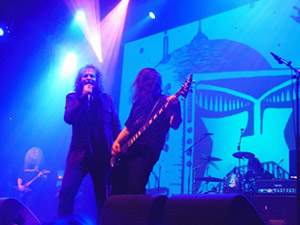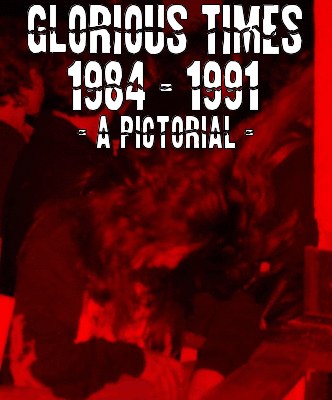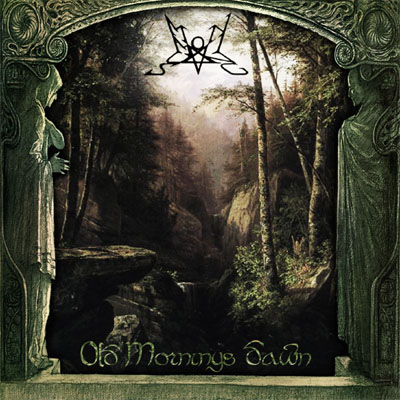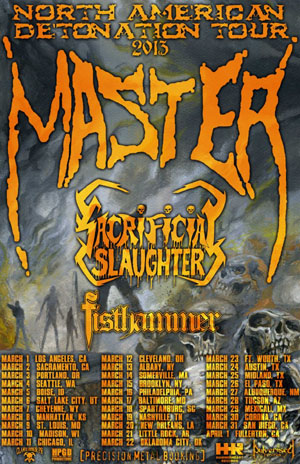 We are proud to launch the DeathMetal.org podcast series which features the type of music and thinking you expect from your favorite nihilist death metal maniacs.
We are proud to launch the DeathMetal.org podcast series which features the type of music and thinking you expect from your favorite nihilist death metal maniacs.
Covert DJ Rob Jones brings you the esoteric undercurrents of doom metal, death metal and black metal in a show that also exports its philosophical examinations of life, existence and nothingness.
If you miss the days when death metal was a Wild West that kept itself weird, paranoid and uncivilized, you will appreciate this detour outside of acceptable society into the thoughts most people fear in the small hours of the night.
The playlist for this week’s show is:
Derketa – Obscurities of Darkness (In Death We Meet)
Extract from Aubade by Philip Larkin (read by Larkin himself)
—
Deathless Order – Tentacles of Circumstance (Obeisance)
Goatcraft – Vestibule to the Abyss (All for Naught)
War Master – Into the Abysmal Fire (Pyramid of the Necropolis)
—
Beithíoch – Arm Na Déithe (Summoning the Past)
Uriel – Azathoth (Arzachel)
Swallowed – Unsavourably (Swallowed)
Chthe’ilist – VeÆcoiitnÆaphnatÆsmaalÓ (Amechth’ntaas’m’rriachth)
A transcript of the dialogue embedded therein:
Death metal is a reflection of our every fear. It thrives upon our sense of our own mortality – the unavoidable feeling of horror that comes from the knowledge that we and everything we cherish and hold dear will eventually all amount to rot.In a world without god there is no respite from this fear; no comfort or deliverance from the terror that wakes us in the night.
To face this darkness unflinchingly is wisdom. To act in spite of the over-arching fear of death is godly.
The very existence of life and consciousness, and all things fleeting and impermanent in this reality are themselves a contradiction and a challenge to the crippling endlessness of death stretching before us and behind us – for if life came from nothing and is only going back to nothing, perhaps here and now is actually something special and sacred?
Death metal like a Lovecraft story presents the world to us in a way that is grotesque and fantastic, contorting and parodying things that at one level should be ordinary and rational but defy explanation – but are also all too familiar and real in their prescient sense of horror at death, despite how obviously mythic and over the top the presentation may be.
Indeed, arguably the surreal outward appearance of death metal is entirely appropriate for discussing death – for death and the cessation of consciousness are to us now as they always have been to man – beyond the normal bounds of our thinking – semi-mythic, inexplicable and more than the mundane sequence of things we grow accustomed to.
The last incomprehensible, more-than-real event our lives will encounter in this secular and rationalist age.
***
Metal music is quite deliberately not very sentimental or excessively introspective about death; but rather by its raging implores us to be actively conscious of death and to endeavor to live life.
For, as death is certain, it is no more meaningful to live in willful ignorance of it than it is to wallow in self-pity about it. Both of these responses are passive, and are little better than being dead before your time. Knowing that, there is perhaps nothing left to do but marvel at the awesomely uncrafted beauty of everything, and to treat life as a constant challenge or adventure – which, paradoxically perhaps, we seem to instinctively know is the most fulfilling way to live.
For by great striving and fortitude life justifies itself, both with each moment and in the reaching towards some future moment or goal – in defiance of the entropic power of decay and death.
Relish the madness. Submerge in the surreal.
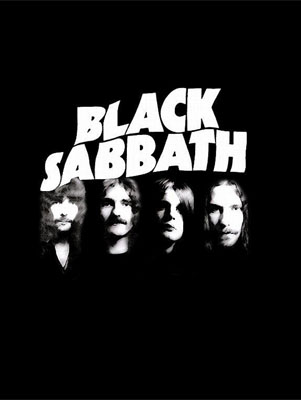 Metal stumps many people because there is a values system within it which has been consistent across the years, but from reading metal lyrics it is hard to figure out what that values system is.
Metal stumps many people because there is a values system within it which has been consistent across the years, but from reading metal lyrics it is hard to figure out what that values system is.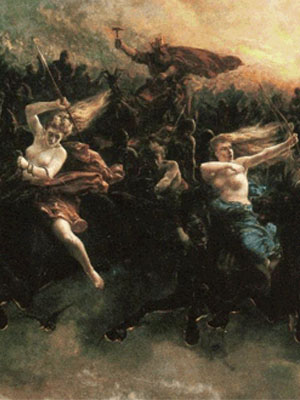 During the second world war, while most of humanity was involved in mass warfare, the writer and thinker Jean Paul Sartre was instead laboring away in the libraries of occupied France. He was solidifying what has become known as the philosophy of ‘existentialism’. One of the main tenants of existentialism is that ‘existence precedes essence’, or in other words, that there is no fixed and immutable basis from which human life proceeds and from which it derives its meaning.
During the second world war, while most of humanity was involved in mass warfare, the writer and thinker Jean Paul Sartre was instead laboring away in the libraries of occupied France. He was solidifying what has become known as the philosophy of ‘existentialism’. One of the main tenants of existentialism is that ‘existence precedes essence’, or in other words, that there is no fixed and immutable basis from which human life proceeds and from which it derives its meaning. During most of its active life, this one-man band (with occasional collaborators) was ignored for being primitive, primal, raw and feral. Its few-chord songs and droning incessant beat made it an obvious target for mockery; from a distance, it sounded like a mis-tuned Toyota with a broken fan belt.
During most of its active life, this one-man band (with occasional collaborators) was ignored for being primitive, primal, raw and feral. Its few-chord songs and droning incessant beat made it an obvious target for mockery; from a distance, it sounded like a mis-tuned Toyota with a broken fan belt.